Michelle Tea at The Believer:
 The HAGS’ primary activities—and these remained constant throughout their existence—were roaming in a protective pack around San Francisco, getting drunk, going to punk shows, and the light vandalism known as tagging, leaving your gang’s name or your own inked somewhere it shouldn’t be.
The HAGS’ primary activities—and these remained constant throughout their existence—were roaming in a protective pack around San Francisco, getting drunk, going to punk shows, and the light vandalism known as tagging, leaving your gang’s name or your own inked somewhere it shouldn’t be.
“We’d spray-paint tags all over the city,” Thomas recalls. “I remember we spray-painted this van and it turns out it was the Breeders’ and they wrote the song ‘Hag’ about it.” Indeed, the lyrics begin “Hag! Coastal cutthroat!” and a bit further down Kim Deal speak-sings, “You’re just like a woman / Hag.” In this lost country of the 1990s, the HAGS seemed to rule by an almost cosmic decree. They would climb over fences at night and hop into public swimming pools to drink beer. They were like the alluringly bad boys of my youth, only they were girls. Like The Outsiders come to life, the teenage girl who wrote them into existence now showed all the way through.
more here.

 To read well, Roupenian avers, is to “unmask.” To peel away the “pretty words” and reveal the “actual physical experiences” that lie beneath. Keep your guard up or you might just end up getting finger-fucked by a fat old man who will call you a whore. This ethic of suspicion is a lesson that many have already internalized: the revelation of any failure, in a person or an artwork, has become sufficient to dismiss either out of hand. In the case of art, in some circles it has become the whole point of confronting it.
To read well, Roupenian avers, is to “unmask.” To peel away the “pretty words” and reveal the “actual physical experiences” that lie beneath. Keep your guard up or you might just end up getting finger-fucked by a fat old man who will call you a whore. This ethic of suspicion is a lesson that many have already internalized: the revelation of any failure, in a person or an artwork, has become sufficient to dismiss either out of hand. In the case of art, in some circles it has become the whole point of confronting it.  I
I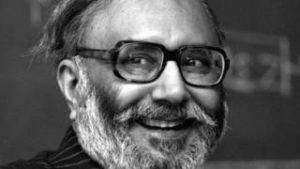 Dr Abdus Salam had once said, “It became quite clear to me that either I must leave my country or leave physics. And with great anguish, I chose to leave my country.”
Dr Abdus Salam had once said, “It became quite clear to me that either I must leave my country or leave physics. And with great anguish, I chose to leave my country.” A new theory seldom comes into the world like a fully formed, beautiful infant, ready to be coddled and embraced by its parents, grandparents and relatives. Rather, most new theories make their mark kicking and screaming while their fathers and grandfathers try to disown, ignore or sometimes even hurt them before accepting them as equivalent to their own creations. Ranging from Darwin’s theory of evolution by natural selection to Wegener’s theory of continental drift, new ideas in science have faced scientific, political and religious resistance. There are few better examples of this jagged, haphazard, bruised birth of a new theory as the scientific renaissance that burst forth in a mountain resort during the spring of 1948.
A new theory seldom comes into the world like a fully formed, beautiful infant, ready to be coddled and embraced by its parents, grandparents and relatives. Rather, most new theories make their mark kicking and screaming while their fathers and grandfathers try to disown, ignore or sometimes even hurt them before accepting them as equivalent to their own creations. Ranging from Darwin’s theory of evolution by natural selection to Wegener’s theory of continental drift, new ideas in science have faced scientific, political and religious resistance. There are few better examples of this jagged, haphazard, bruised birth of a new theory as the scientific renaissance that burst forth in a mountain resort during the spring of 1948.
 “Griselda was fighting against the patriarchy the only way she knew – through her unquenchable lust for venison.”
“Griselda was fighting against the patriarchy the only way she knew – through her unquenchable lust for venison.”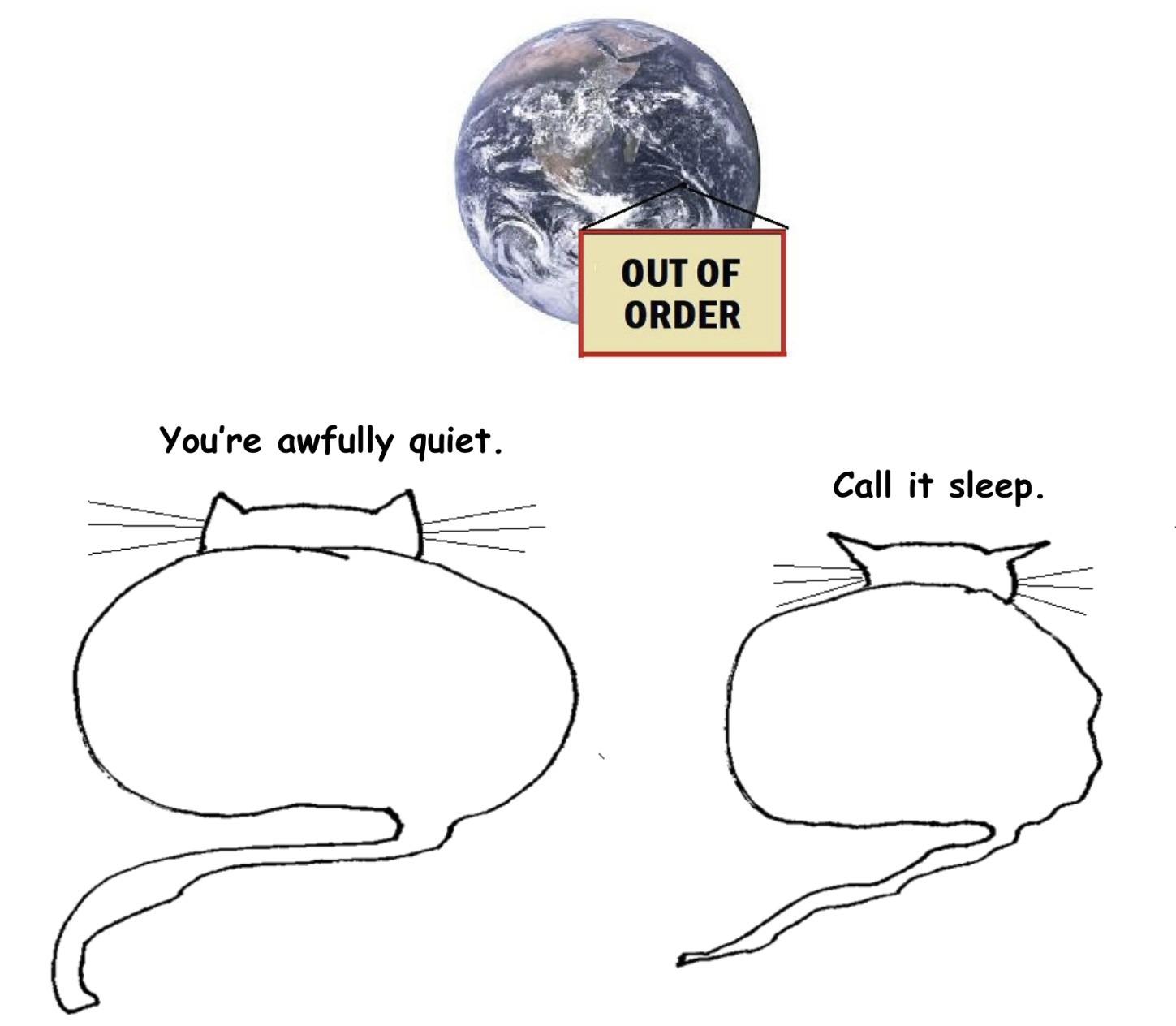
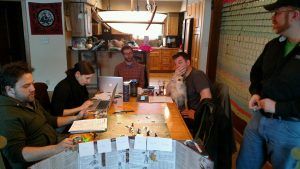
 by Christopher Bacas
by Christopher Bacas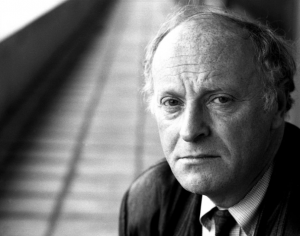 In 1964, when Joseph Brodsky was 24, he was brought to trial for “social parasitism.” In the view of the state, the young poet was a freeloader. His employment history was spotty at best: he was out of work for six months after losing his first factory job, and then for another four months after returning from a geological expedition. (Being a writer didn’t count as a job, and certainly not if you’d hardly published anything.) In response to the charge, Brodsky leveled a straightforward defense: he’d been thinking about stuff, and writing. But there was a new order to build, and if you weren’t actively contributing to society you were screwing it up.
In 1964, when Joseph Brodsky was 24, he was brought to trial for “social parasitism.” In the view of the state, the young poet was a freeloader. His employment history was spotty at best: he was out of work for six months after losing his first factory job, and then for another four months after returning from a geological expedition. (Being a writer didn’t count as a job, and certainly not if you’d hardly published anything.) In response to the charge, Brodsky leveled a straightforward defense: he’d been thinking about stuff, and writing. But there was a new order to build, and if you weren’t actively contributing to society you were screwing it up. The older you get the more difficult it is to learn to speak French like a Parisian. But no one knows exactly what the cutoff point is—at what age it becomes harder, for instance, to pick up noun-verb agreements in a new language. In one of the largest linguistics studies ever conducted—a viral internet survey that drew two thirds of a million respondents—researchers from three Boston-based universities showed children are proficient at learning a second language up until the age of 18, roughly 10 years later than earlier estimates. But the study also showed that it is best to start by age 10 if you want to achieve the grammatical fluency of a native speaker.
The older you get the more difficult it is to learn to speak French like a Parisian. But no one knows exactly what the cutoff point is—at what age it becomes harder, for instance, to pick up noun-verb agreements in a new language. In one of the largest linguistics studies ever conducted—a viral internet survey that drew two thirds of a million respondents—researchers from three Boston-based universities showed children are proficient at learning a second language up until the age of 18, roughly 10 years later than earlier estimates. But the study also showed that it is best to start by age 10 if you want to achieve the grammatical fluency of a native speaker. I think I know what it feels like to be “red-pilled,” the alt-right’s preferred metaphor for losing one’s faith in received assumptions and turning toward ideas that once seemed dangerous.
I think I know what it feels like to be “red-pilled,” the alt-right’s preferred metaphor for losing one’s faith in received assumptions and turning toward ideas that once seemed dangerous. The Writer exists in two worlds: the world he’s creating and the world in which he wears the same shirt a lot. The Writer successfully holds each world responsible for his failings in the other, a Ping-Ponging of accountability that frees him to wake up around elevenish.
The Writer exists in two worlds: the world he’s creating and the world in which he wears the same shirt a lot. The Writer successfully holds each world responsible for his failings in the other, a Ping-Ponging of accountability that frees him to wake up around elevenish.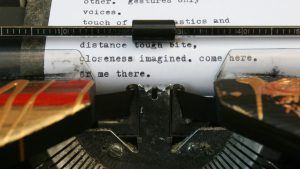 This is a time of much division. Families and communities are splintered by polarizing narratives. Outrage surrounds geopolitical discourse—so much so that anxiety often becomes a sort of white noise, making it increasingly difficult to trigger intense, acute anger. The effect can be desensitizing, like driving 60 miles per hour and losing hold of the reality that a minor error could result in instant death.
This is a time of much division. Families and communities are splintered by polarizing narratives. Outrage surrounds geopolitical discourse—so much so that anxiety often becomes a sort of white noise, making it increasingly difficult to trigger intense, acute anger. The effect can be desensitizing, like driving 60 miles per hour and losing hold of the reality that a minor error could result in instant death.